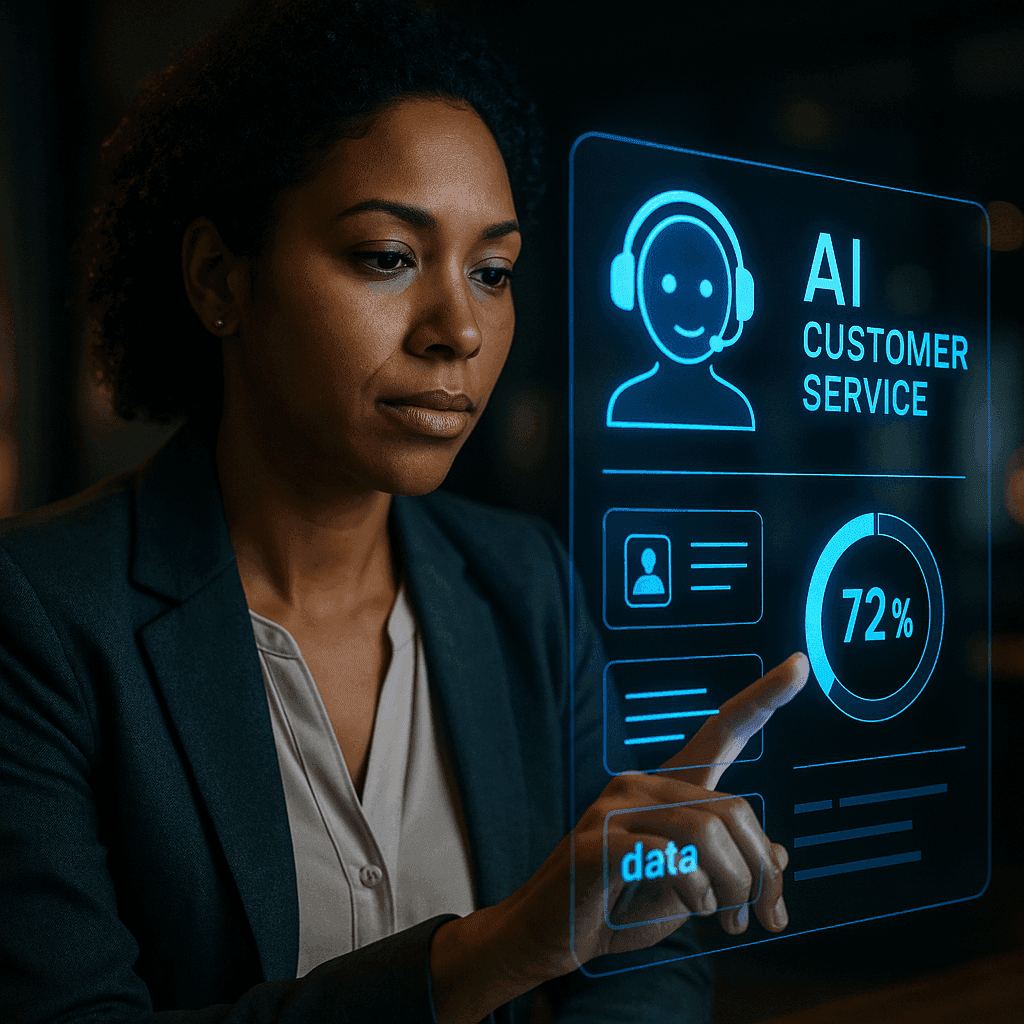AI's Data Privacy Dilemma: Your Guide to Staying Secure in 2025

AI's Data Privacy Dilemma: Your Guide to Staying Secure in 2025
Remember when AI was mostly theoretical? Fast forward to 2025, and it’s woven into the fabric of almost every business. But as AI adoption skyrockets, so does its appetite for data – your company’s sensitive info, your customers’ private details. The 2025 Stanford AI Index dropped a bombshell: AI-related privacy and security incidents shot up by over 56% last year. Yikes! Public trust is plummeting, regulations are multiplying, and failing to protect data isn’t just a bad look – it’s a legal, reputational, and financial landmine. It’s time to move beyond hoping for the best and build a bulletproof privacy strategy for your AI deployments.
The Privacy Predicament: Why We're All on High Alert
It’s not just a few bad apples; data breaches are surging across the board, with over 1,700 public incidents in the first half of 2025 alone. But AI throws some unique curveballs. Ever heard of "prompt injection attacks"? That's where malicious inputs trick an AI into spitting out confidential data it shouldn't. Or "model leakage," where sensitive info from training data seeps into public outputs. These aren't just technical glitches; they're direct threats to your company's secrets.
Add to that a regulatory landscape that changes faster than the weather. Different countries and even different US states are cooking up their own AI privacy laws. What was compliant yesterday might earn you a hefty fine today. And consumers? They're more vigilant than ever, with nearly 70% distrusting companies to use AI responsibly. They’re demanding control over their data, and ignoring these demands isn’t an option.
The Privacy Playbook: Smart Solutions for the AI Age
So, how do we tackle this data privacy monster? It’s all about being proactive, not reactive.
- Privacy-by-Design: Think of it like baking privacy into your AI from the ground up, not trying to add sprinkles after it's out of the oven. Data minimization, strong encryption, and clear consent management are built into every AI process.
- Zero Trust Architecture: Imagine a bouncer at every data door. No one, not even internal systems, gets in without proving who they are and if they’re authorized. Solutions like AI Data Gateways are the new VIP pass, carefully restricting and monitoring how AI models access sensitive datasets.
- Decentralized Identity: Give the power back to your users. Think of a digital wallet for their identity, letting them grant and revoke data access on their terms. This isn't just a tech trend; it’s a trust-builder.
- Automated Compliance: Data Subject Requests (DSRs) can be a headache. Luckily, platforms are stepping up to automate these requests, making compliance scalable and user-friendly.
- Transparency & Explainability: No more "black box" AI. New models offer "glass box" features, providing audit trails and explaining their decisions, ensuring only approved data is used.
- Employee Training: "Shadow AI" – employees using external AI tools without official oversight – is a real risk. Regular training and clear guidelines are crucial to prevent accidental data leaks.
Real-World Lessons: What Happens When You Get It Right (and Wrong)
The 2025 Stanford AI Index laid it bare: companies that dragged their feet on security faced not just legal penalties, but a massive hit to public trust. On the flip side, companies like Kiteworks are pioneering solutions. Their AI Data Gateway acts as a data traffic cop, ensuring AI tools only see what they’re supposed to see, significantly reducing exposure risks.
We've also seen fintechs experimenting with decentralized identity, empowering users and building stronger relationships. But then there are the cautionary tales: businesses that blindly fed proprietary data into public LLMs, only to see sensitive customer information pop up elsewhere, leading to fines and a PR nightmare. Ouch.
Looking Ahead: The Future of AI Privacy
The privacy landscape is only going to get more exciting.
- Regulatory Avalanche: Expect more stringent, AI-specific rules globally. Regulators are catching up, and fast.
- Privacy as a Profit Center: "Privacy-first AI" won’t just be a buzzword; it’ll be a competitive edge, a badge of honor that attracts discerning customers.
- User Control Reigns: Decentralized, tokenized consent will become more mainstream, giving consumers unprecedented control over their digital footprint.
- Advanced Defenses: As AI attacks evolve, so will our defenses, with new tools specifically designed to counter prompt injections and other novel threats.
Your AI Privacy Imperative
Adopting AI responsibly isn't just about unlocking innovation; it's about safeguarding your business. Moving forward, a comprehensive, proactive strategy for data privacy and security isn't optional – it's fundamental. Pair smart tech solutions like AI Data Gateways with adaptive governance, transparent practices, and ongoing employee education. The companies that embrace privacy as a core value today aren't just avoiding risks; they're building trust, future-proofing their operations, and securing sustainable AI success. Don't wait for a data breach to be your wake-up call.
More Articles

The CX Revolution: 65+ AI Customer Service Stats You Need for 2025
Explore how AI is rapidly transforming customer service by 2025, from lightning-fast chatbots to hyper-personalization, and why a human touch still matters.

Is AI Taking Over Customer Service? What 2025 Really Looks Like
Explore how AI is reshaping customer service in 2025, from hyper-personalization to autonomous agents, and discover the essential balance between efficiency and the human touch.